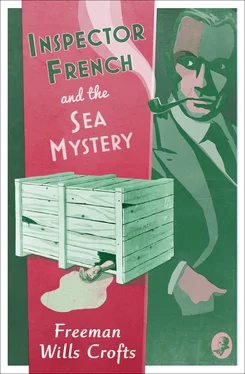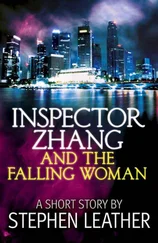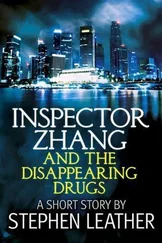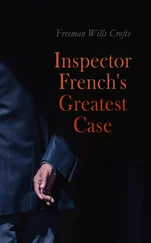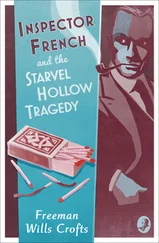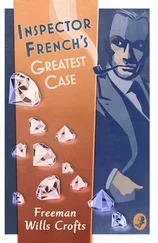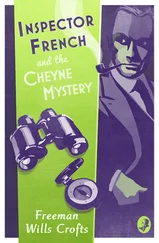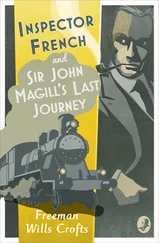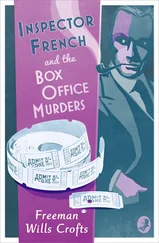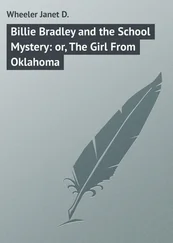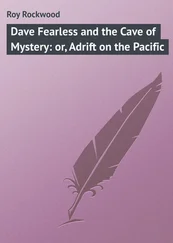FREEMAN WILLS CROFTS
Inspector French and the Sea Mystery
Published by COLLINS CRIME CLUB
An imprint of HarperCollins Publishers Ltd
1 London Bridge Street
London SE1 9GF
www.harpercollins.co.uk
First published in Great Britain by Wm Collins Sons & Co. Ltd 1928
Copyright © Estate of Freeman Wills Crofts 1928
Cover design by Mike Topping © HarperCollins Publishers Ltd 2017
A catalogue copy of this book is available from the British Library.
This novel is entirely a work of fiction. The names, characters and incidents portrayed in it are the work of the author’s imagination. Any resemblance to actual persons, living or dead, events or localities is entirely coincidental.
All rights reserved under International and Pan-American Copyright Conventions. By payment of the required fees, you have been granted the non-exclusive, non-transferable right to access and read the text of this e-book on screen. No part of this text may be reproduced, transmitted, down-loaded, decompiled, reverse engineered, or stored in or introduced into any information storage and retrieval system, in any form or by any means, whether electronic or mechanical, now known or hereinafter invented, without the express written permission of HarperCollins.
Source ISBN: 9780008190675
Ebook Edition © January 2017 ISBN: 9780008190682
Version 2016-12-09
Table of Contents
Cover
Title Page
Copyright
Chapter 1: Mr Morgan Meets Tragedy
Chapter 2: Inspector French Gets Busy
Chapter 3: Experimental Detection
Chapter 4: A Change of Venue
Chapter 5: Messrs Berlyn and Pyke
Chapter 6: The Despatch of the Crate
Chapter 7: Dartmoor
Chapter 8: A Fresh Start
Chapter 9: A Step Forward
Chapter 10: London’s Further Contribution
Chapter 11: John Gurney, Night Watchman
Chapter 12: The Duplicator
Chapter 13: The Accomplice?
Chapter 14: French Turns Fisherman
Chapter 15: Blackmail
Chapter 16: Certainty at Last
Chapter 17: ‘Danger!’
Chapter 18: On Hampstead Heath
Chapter 19: The Bitterness of Death
Chapter 20: Conclusion
About the Author
Also in this Series
About the Publisher
1
Mr Morgan Meets Tragedy
The Burry Inlet, on the south coast of Wales, looks its best from the sea. At least so thought Mr Morgan, as he sat in the sternsheets of his boat, a fishing line between his fingers, while his son, Evan, pulled lazily over the still water.
In truth the prospect on this pleasant autumn evening would have pleased a man less biased by pride of fatherland than Mr Morgan. The Inlet at full tide forms a wide sheet of water, penetrating in an easterly direction some ten miles into the land, with the county of Carmarthen to the north and the Gower Peninsula to the south. The shores are flat, but rounded hills rise inland which merge to form an undulating horizon of high ground. Here and there along the coast are sand-dunes, whose greys and yellows show up in contrast to the green of the grasslands and the woods beyond.
To the south-east, over by Salthouse Point and Penclawdd, Mr Morgan could see every detail of house and sand-dune, tree and meadow, lit up with a shining radiance, but the north-west hills behind Burry Port were black and solid against a setting sun. Immediately north lay Llanelly, with its dingy coloured buildings, its numberless chimneys, and the masts and funnels of the steamers in its harbour.
It was a perfect evening in late September, the close of a perfect day. Not a cloud appeared in the sky, and scarcely a ripple stirred the surface of the sea. The air was warm and balmy, and all nature seemed drowsing in languorous content. Save for the muffled noise of the Llanelly mills, borne over the water, and the slow, rhythmic creak of the oars, no sound disturbed the sleepy quiet.
Mr Morgan was a small, clean-shaven man in a worn and baggy Norfolk suit, which was the bane of Mrs Morgan’s existence, but in which the soul of her lord and master delighted as an emblem of freedom from the servitude of the office. He leaned back in the sternsheets, gazing out dreamily on the broad sweep of the Inlet and the lengthening shadows ashore. At times his eyes and thoughts turned to his son, Evan, the fourteen-year-old boy who was rowing. A good boy, thought Mr Morgan, and big for his age. Though he had been away at school for nearly three years he was still his father’s best pal. As Mr Morgan thought of the relations between some of his friends and their sons, he felt a wave of profound thankfulness sweep over him.
Presently the boy stopped rowing.
‘Say, Dad, we’ve not had our usual luck today,’ he remarked, glancing disgustedly at the two tiny mackerel which represented their afternoon’s sport.
Mr Morgan roused himself.
‘No, old man, those aren’t much to boast about. And I’m afraid we shall have to go in now. The tide’s beginning to run, and I expect we could both do with a bit of supper. Let’s change places and you have a go at the lines while I pull in.’
To anyone attempting navigation in the Burry Inlet the tides are a factor of the first importance. With a rise and fall at top springs of something like twenty-five feet, the placid estuary of high water becomes a little later a place of fierce currents and swirling eddies. The Inlet is shallow also. At low tide by far the greater portion of its area is uncovered, and this, by confining the rushing waters to narrow channels, still further increases their speed. As the tide falls the great Llanrhidian Sands appear, stretching out northwards from the Gower Peninsula, while an estuary nearly four miles wide contracts to a river racing between mud banks five hundred yards apart.
Mr Morgan took the paddles, and heading the boat for the northern coast, began to pull slowly shorewards. He was the manager of a large tinplate works at Burry Port and lived on the outskirts of the little town. Usually a hard worker, he had taken advantage of a slack afternoon to make a last fishing excursion with his son before the latter’s return to school. The two had left Burry Port on a flowing tide and had drifted up the Inlet to above Llanelly. Now the tide was ebbing, and they were being carried swiftly down again. Mr Morgan reckoned that by the time they were opposite Burry Port they should be far enough inshore to make the harbour.
Gradually the long line of the Llanelly houses and chimneys slipped by. Evan had clambered aft and at intervals he felt with the hand of an expert the weighted lines which were trailing astern. He frowned as he glanced again at the two mackerel. He had had a good many fishing trips with his father during the holidays and never before had they had such a miserable catch. How he wished he could have a couple of good bites before they had to give up!
The thought had scarcely passed through his mind when the line he was holding tightened suddenly and began to run out through his fingers. At the same moment the next line, which was made fast round the after thwart, also grew taut, strained for a second, then with a jerk slackened and lay dead. Evan leaped to his feet and screamed out in excitement:
‘Hold, Daddy, hold! Backwater, quick! I’ve got something big!’
The line continued to run out until Mr Morgan, by rowing against the tide, brought the boat relatively to a standstill. Then the line stopped as if anchored to something below, twitching indeed from the current, but not giving the thrilling chucks and snatches for which the boy was hoping.
‘Oh, blow!’ he cried disgustedly. ‘It’s not a fish. We’ve got a stone or some seaweed. See, this one caught it too.’
Читать дальше
